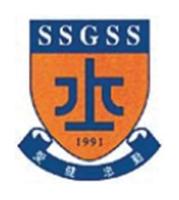| Language Policy |
Chinese is adopted as the medium of instruction for effective learning and teaching. By hosting morning assemblies in English and Putonghua, participating actively on English Days and in various English activities, developing reading habits and promoting a good language environment, our students are given ample chances to enhance their mastering of "bi-literacy and trilingualism" in a language-rich school campus. At junior levels, extra support is offered to enhance students' interest in learning English. Enhanced English training, together with extended learning activities in English are implemented in non-language subjects. |
| Learning and Teaching Strategies |
In addition to the core syllabus, a diverse school-based curriculum is provided to cater for students of different learning needs.Morning reading sessions are held twice a week throughout the year as well as Reading Week, Reading Award Programme and subject-based reading programme are held to promote good reading habits. In Secondary one and Secondary two, an extra tenth lesson is specifically introduced to strengthen students' skills in self-directed learning. Various extra-curricular activities are also organized to foster students’ interest and broaden their horizons. In keeping with this policy, the school has established an Innovation Laboratory which aims to cultivate students' interest and ability in STEAM to unleash their creativity. |
| School-based curriculum |
1. Electives: 2X. (Including subjects of the Science, Technology, PSHE, and Arts Key Learning Areas as well as Applied Learning subjects). Elective groups are arranged according to the interests and abilities of students.<br> 2. Curriculum highlights: A diverse school-based curriculum can help explore, cater for and realize the potential of students, which enables better and earlier career and life planning. |
| Approach to Catering for Learner Diversity |
Through a whole school approach of Moral and Civic Education, students are encouraged to become a person of good moral character, social responsibility, and critical judgment. Students are also encouraged to take part in various extra-curricular activities so as to broaden their horizons and develop their potential. Our school has joined the School-Based Support Scheme for the Newly-arrived Children to help new students adapt to the local Hong Kong education system and improve their English proficiency. |
| Approach to Integrated Education |
Our school has developed an inclusive school culture to provide appropriate support for students and strengthen our effectiveness in catering for student diversity. Our school has a Special Educational Needs Coordinator and Special Educational Needs Support Teacher. With an integrated education policy, we have flexibly and fully utilized Learning Support Grant and additional resources to support students with special educational needs such as Individual Educational Plan, after-school individual learning guidance, language training courses, speech therapy service, attention enhancement training course, special interest class and so on. Our school has provided internal test/exam special arrangement for the students with special educational needs and applied public exam special arrangement for them. We have worked closely with parents, educational psychologists and experts from Education Bureau to ensure that our students are supported in their learning. |
| Education Support for Non-Chinese Speaking (NCS) Students |
|
| Home-School Co-operation |
Our Parent-Teacher Association was established in 1991 to foster close ties between parents and teachers and to reinforce the caring learning environment. Parents are informed of latest school events through regular newsletters, Parent-Teacher symposium, talk, meetings, and Parent-Child Tour. The Association gives the school abundant support by donating scholarships and awards to students. |
| School Ethos |
We strive to foster a spirit of self-discipline, courtesy, mutual respect, responsibility and gratitude amongst our students through various student support activities. To enhance students' academic performance, we have also arranged self-directed learning lessons, enhancement classes, examination skills courses, counselling for new immigrants, and the "lunch-in-school" programme. |
| School Development Plan |
The major concerns for the School Development Plan from 2021 to 2024 are:<br>1. Learning diversely to unravel potentialities.<br>2. Instilling values education to promote the virtue of caring oneself and others. |
| Teacher Professional Training and Development |
Seminars and workshops are held regularly to keep teaching staff abreast of the latest issues in education. In addition, there is regular lesson observation and professional interflow among teaching staff. Teachers are also encouraged to enroll in relevant courses and workshops in pursuit of further professional development.<br>A special teacher bulletin board is set up to display latest information about education and professional development. |
| Life-wide Learning |
We have 32 clubs, including interest groups, 5 uniform groups, as well as 4 Houses, which are named Ai House, Jian House, Zhong House and Qin House. Extra-curricular activities are organized to help students develop their academic strengths, personal interests, physical fitness and interest in serving the community. |
